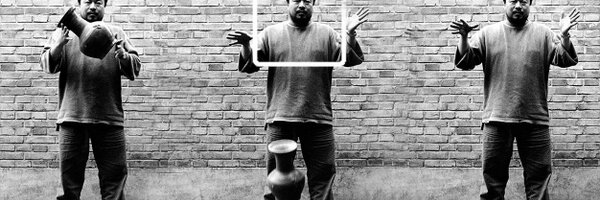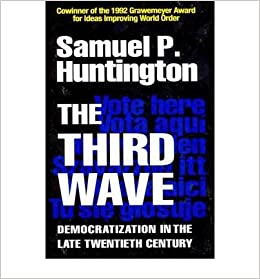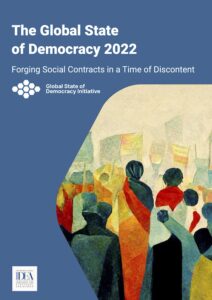A similar situation confronted Ronald Reagan in the 1980s, he writes for The Washington Post:
Reagan and his Secretary of State George Shultz saw the Cold War primarily as a battle of ideas between Soviet communism and the democratic capitalism of the free world. They realized that exposing the oppression and penury of the Soviet system was necessary but not sufficient in this contest; they also had to show that free societies offered a better way of life.
Reagan put resources behind his rhetoric. His Westminster speech birthed the National Endowment for Democracy (NED) and several affiliate organizations. These groups funded dissidents and democracy activists in nations such as South Korea, Taiwan and Chile. This support seeded the soil so that when popular discontent with dictatorships swelled, civil society organizations were sufficiently funded and organized to lead democratic transitions.

Ai Wei Wei/Twitter
Artists and cultural figures – from Boris Pasternak to Ai Wei Wei – testify to the resilient demand for freedom and democracy, says historian Simon Schama.
Of course, there are limits to what activist art and culture can do, he writes for The Financial Times. More heartening, however, are the demonstrations — from one end of the world to the other — of how their eloquence and visionary power can actually affect contested outcomes.

Today, democracy may be in decline, but there is still an upswell of activism that offers an opportunity to follow Reagan’s lead by providing political, economic, informational and moral support to democracy activists around the world, adds Inboden, the author of “The Peacemaker: Ronald Reagan, the Cold War, and the World on the Brink.” It’s impossible to know if a fourth wave of democratization is waiting to form, but such efforts made a difference in the past, and they just might do so again.
The expansion of non-democratic rule and the global eruption of anti-authoritarian popular movements raise some important questions, adds MIT: How do authoritarian leaders control their citizens to ensure the regime’s survival? Does ever-advancing digital technology facilitate or dampen authoritarian repression? When are pro-democracy movements most likely to succeed? A four-part IAP lecture series offers some answers:
- Lecture 1 (1/10) Tactics of political control: repression, re-distribution, indoctrination, and infiltration. Country cases: Syria, China, Zimbabwe, Brazil, Kenya.
- Lecture 2 (1/17) Digital authoritarianism, technology’s influence on protest and repression, the Arab Spring. Country cases: Egypt, Tunisia, Libya, Iran, China, Russia.
- Lecture 3 (1/24) Influence of repression on society. Country cases: Ukraine, Poland, China, United States, Iraq.
- Lecture 4 (1/31) What explains authoritarian durability in some countries? Why do some protests lead to democratization? Country cases: Egypt, Tunisia, China, Russia.
Tuesday, January 10, 2023 at 11:00am to 12:00pm. More dates through January 31, 2023. RSVP








